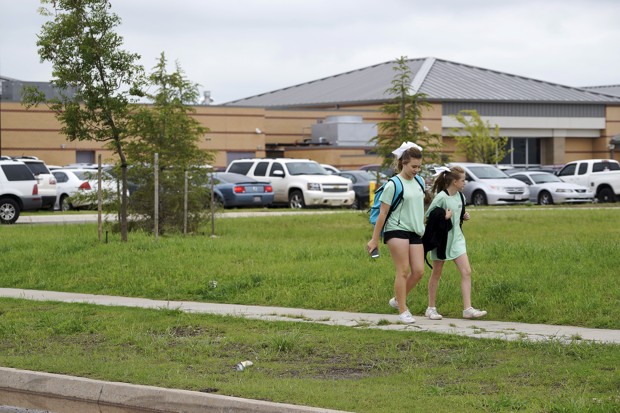The Betsy DeVos School Choice Lie | deutsch29:
The Betsy DeVos School Choice Lie
If you think that US ed sec Betsy DeVos wants anything other than to end American public education and replace it with an a-la-carte, private-school-favoring menu of largely underregulated school-like options, think again.
This, readers, is her single goal. And if you don’t agree with her, you are of limited intellect and capability.
Consider these excerpts, which she gave on May 22, 2017, as part of a speech to a pro-voucher group that she founded, the American Federation for Children (AFC):
We’ve had 30 years of “reform.”
And while we celebrate the progress that has been made, each year there are still far too many kids falling through the cracks.
The time has expired for “reform”. We need a transformation – a transformation that will open up America’s closed and antiquated education system.
If we really want to help students, then we need to focus everything about education on individual students – funding, supporting and investing in them. Not in buildings; not in systems.
It shouldn’t matter where a student learns so long as they are actually learning.
It shouldn’t matter if learning takes place in a traditional public school, a Catholic school, a charter school, a non-sectarian private school, a Jewish school, a home school, a magnet school, an online school, any customized combination of those schools – or in an educational setting yet to be developed. …
We must offer the widest number of quality options to every family and every child. Empowering parents with choices is how to give students second, third or fourth chances before it’s too late.
Even the most expensive, state-of-the-art, high-performing school will not be the perfect fit for every single child. Parents know – or can figure out – what learning environment is best for their child, and we must give them the right to choose where that may be.
But it’s not enough to promote choice simply for the sake of choice. That doesn’t serve kids. If a menu is full of bad options, then do you really have a choice at all?
The point is to provide quality options that serve students so each of them can grow. Every option should be held accountable, but they should be directly accountable to parents and communities, not to Washington, DC bureaucrats.
In order to succeed, education must commit to excellence and innovation to better meet the needs of individual students. Defenders of our current system have regularly been resistant to any meaningful change. In resisting, these “flat-earthers” have chilled creativity and stopped American kids from competing at the highest levels. Our current framework is a closed system that relies on one-size-fits-all solutions. We need an open system that envelopes choices and embraces the future.
DeVos tosses in words like “quality” and “accountable”; however, she also states time and again that regulation of her quality word salad “should be left up to the states”– which means that states can do whatever they wish because they get the ultimate choice in her school choice utopia.

















